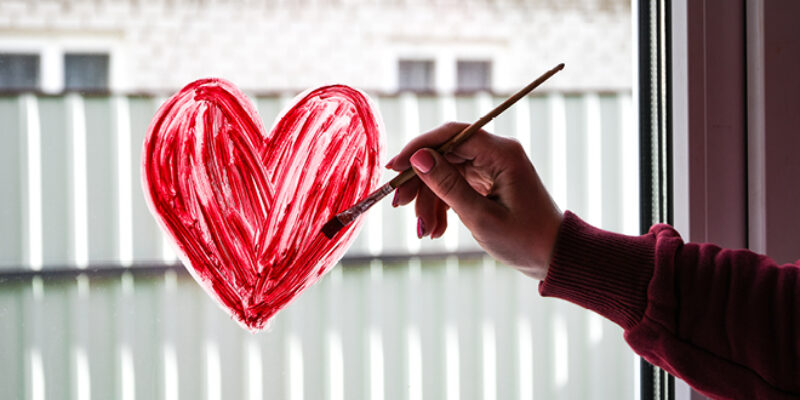
As Chief Executive of VHS I am reflecting back on this week’s annual conference Building Forward Better for Health and Wellbeing (4-5 November 2020). A clear message that emerged was that levels of stress, anxiety, exhaustion and burn-out are fast rising at all levels in the voluntary health sector as a direct result of the Covid-19 pandemic and measures taken to mitigate its impact. We heard this from large national charities, small voluntary organisations and local Third Sector Interfaces, who told us of the toll the pandemic is taking on their leaders, managers, support staff, frontline staff and volunteers.
Arguably, workforce mental health and the consequences for our sector’s capacity to continue to respond to need were the biggest shared issues emerging from our conference this year, a repeated theme of discussion during both breakout and plenary sessions. A sobering topic during National Stress Awareness Week, and VHS took the opportunity to promote the National Wellbeing Hub for People Working in Health and Social Care and their resources for self-care And the topic went hand in hand with our conference strapline #WeArePublicHealth and overall message that we are ALL public health workers now – or, as Professor Kate Ardern (Director of Public Health in Wigan) put it: “We are all directors of public health now”.
Social care and health organisations employ over half of all paid staff in the third sector, according to SCVO’s February 2020 State of the Sector Report. They work in roles such as care assistants, support workers, nurses, social workers, health and mental support workers, nursery and childcare workers. At the start of the year the third sector as a whole employed 107,432 people in paid roles, or 3.4% of the Scottish workforce, although it’s important to note that three-quarters of Scottish charities have no paid staff at all. According to the same SCVO survey, 28% of adults in Scotland were involved in volunteering.
In March 2020 most voluntary health organisations reacted swiftly to the lockdown, to adapt, pivot their services, and put a wide range of emergency interventions and new services and support into place – not just for existing service users, but for new referrals from people who suddenly found themselves in great need. In nearly all cases this meant organisations moving to home working, often having to sort out a complex array of logistics, technology, systems and resources to enable that to happen. It also meant standing down very many volunteers due to their own vulnerability to Covid-19 and because face to face services had to close. VHS published a Research Briefing on 2nd April, the results of our survey of the early impact of the lockdown on 143 voluntary health organisations. The survey demonstrated clearly that organisations’ immediate priority was to identify need and work out new ways to continue to support their service users and beneficiaries.
Energy, determination and adrenalin carried everyone through for the months of the first lockdown and beyond, together with workforce skills, professionalism and good governance and in some case additional short term emergency funding or existing funders being prepared to be flexible. However, many organisations now report that they are running on empty due to reduced capacity. This is for varied and inter-connected reasons, including loss of income sometimes combined with increased costs. Charities dependent on fundraising, charity shops or income from trading have seen their income fall off a cliff since since March. Other factors impacting on capacity are furloughed staff, staff off sick and volunteers unable to be redeployed but still needing to be engaged and supported as part of the workforce. There are very real fears about future funding and the future sustainability of organisations going forward. Staff may be home working or back on the frontline but all of them need additional support for their health and wellbeing, people’s work and home situations are still far from normal. All of these factors are combining to put a sometimes intolerable strain on what are often very small organisations.
At VHS’s conference, some local Third Sector Interfaces reported their growing fears that public sector partners, agencies and professionals may now have unrealistic expectations about what our sector will be able to deliver during a second wave of Covid-19 and any further lockdowns. Having gone to extraordinary and exhausting lengths to find new ways to serve communities during all these long months, where does that leave us now? Unless significantly more resources are made available directly to voluntary health organisations to address the capacity deficit how can our sector repeat what it delivered during the first lockdown or keep up the pace it has maintained ever since? The health and wellbeing of essential staff, volunteers and trustees are already under too much strain.
There needs to be much more recognition and understanding of these issues, and partnership and collaboration are key, but most importantly we need investment. For example, as community link workers in GP practices start to work more ‘normally’ the increase in primary care referrals to voluntary and community organisations is going up again, but at a time when those organisations are really struggling. VHS is pleased that this challenge/dilemma has been actively recognised and highlighted by the Primary Care Inequalities Short Life Working Group recently set up within the Scottish Government and reporting into the Cabinet Secretary for Health’s Mobilisation Recovery Group. The agenda there is one of prevention as well as recovery – a strong third sector going forward will take pressure off the NHS. What is needed is for all of the various Scottish Government, Public Health Scotland and COSLA recovery, mobilisation and renewal Covid-19 related workstreams and strategies to take this on board, together with Health and Social Care Partnerships and Community Planning Partnerships. And to give the final word to Suzanne Glennie, Health Improvement Manager with Glasgow Health and Social Care Partnership, let’s try to exercise some self compassion too- for all our greater psychological health.
Claire Stevens is Chief Executive of VHS.
